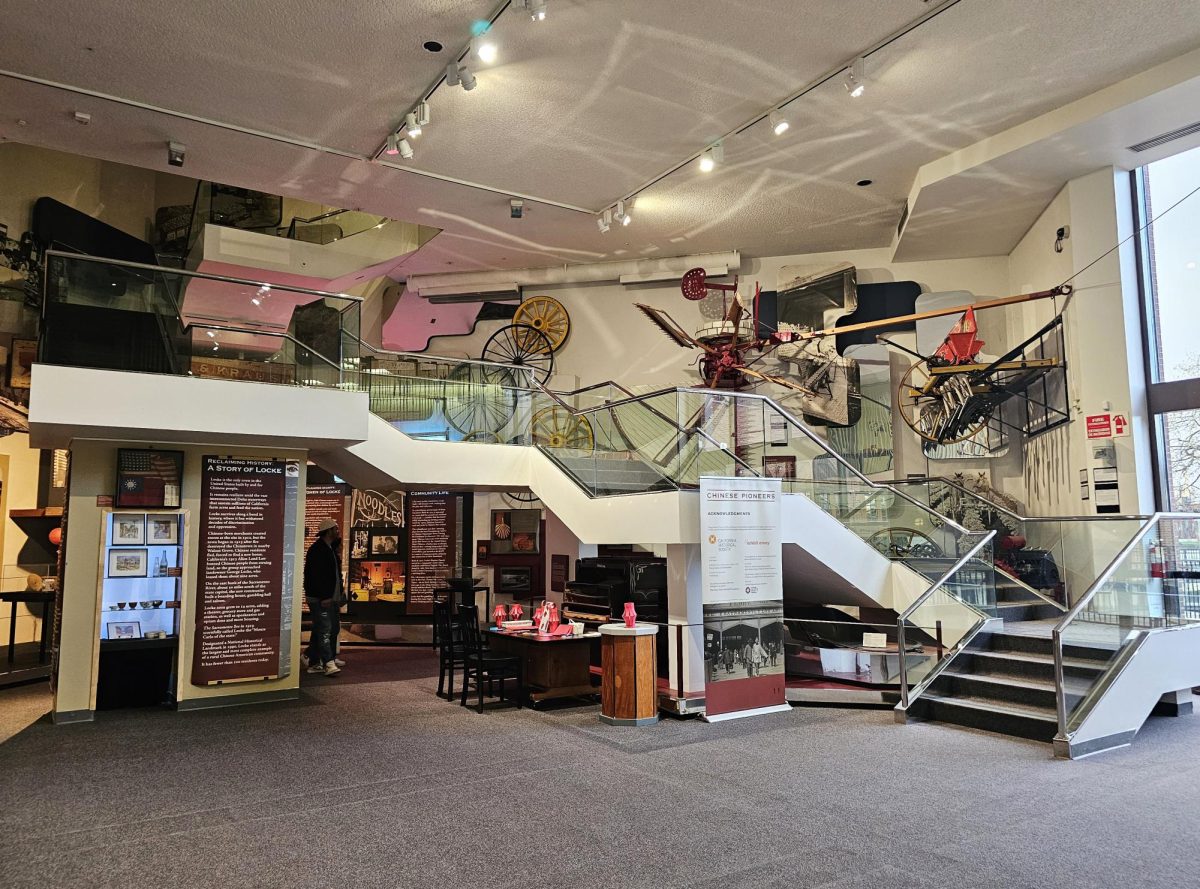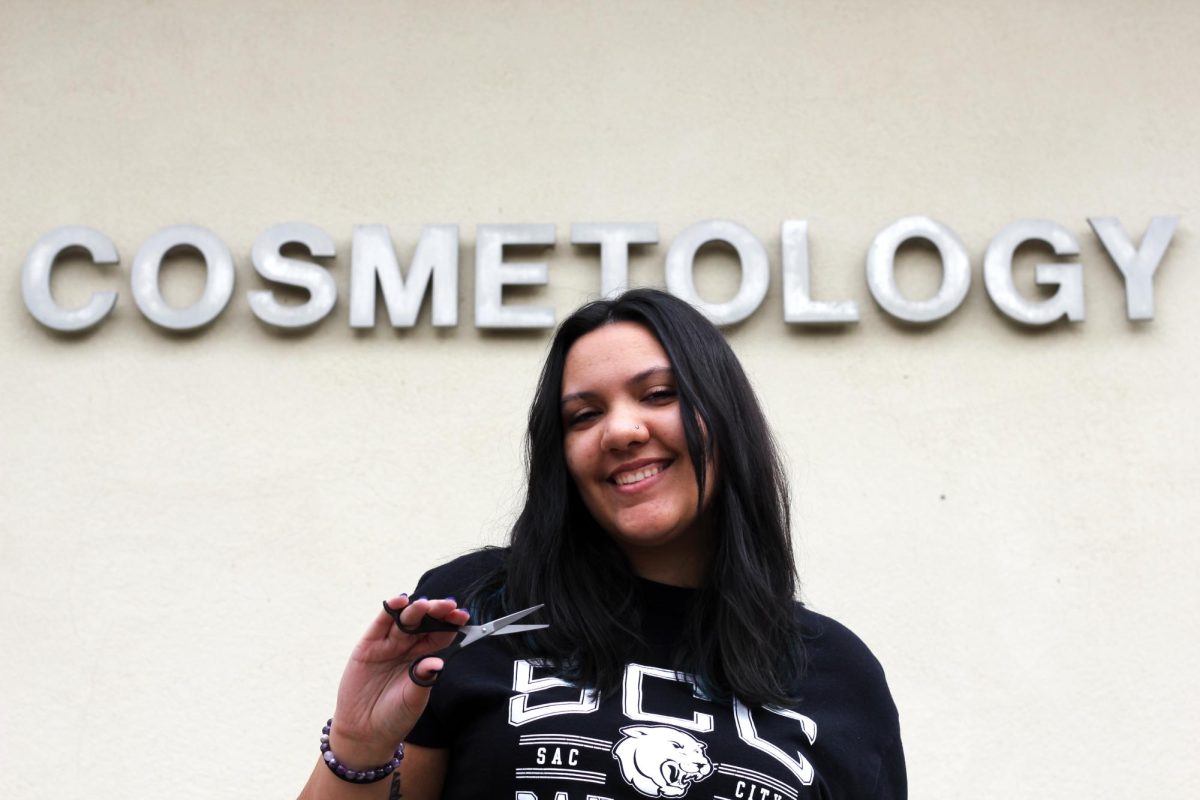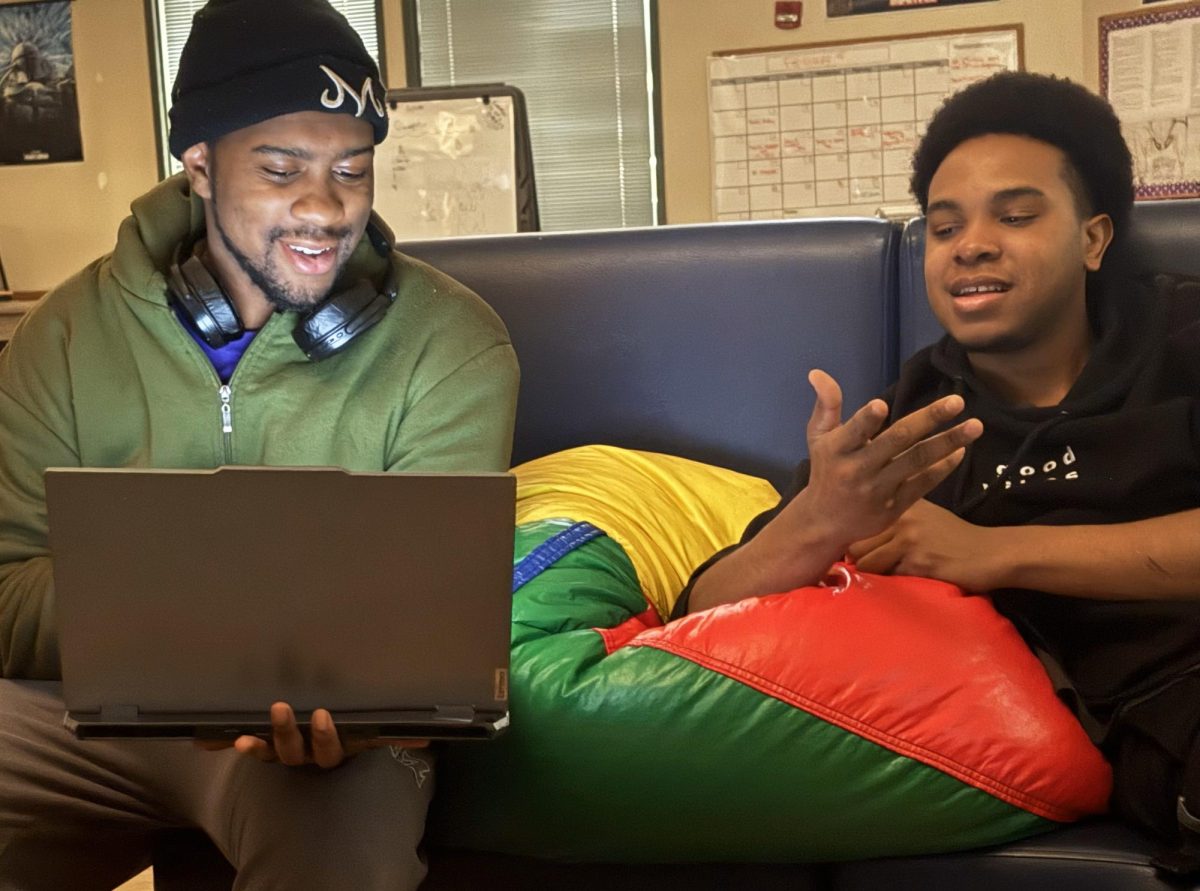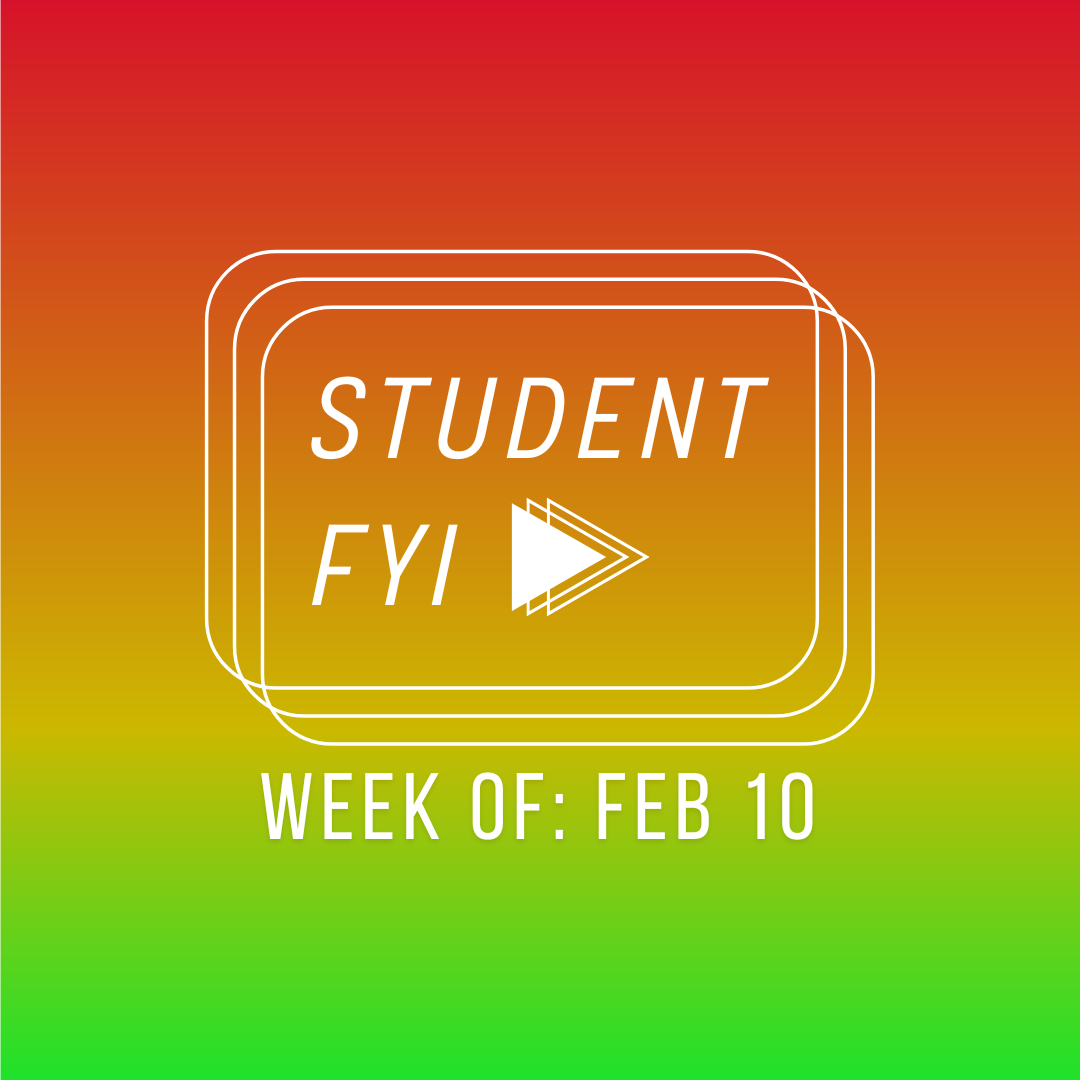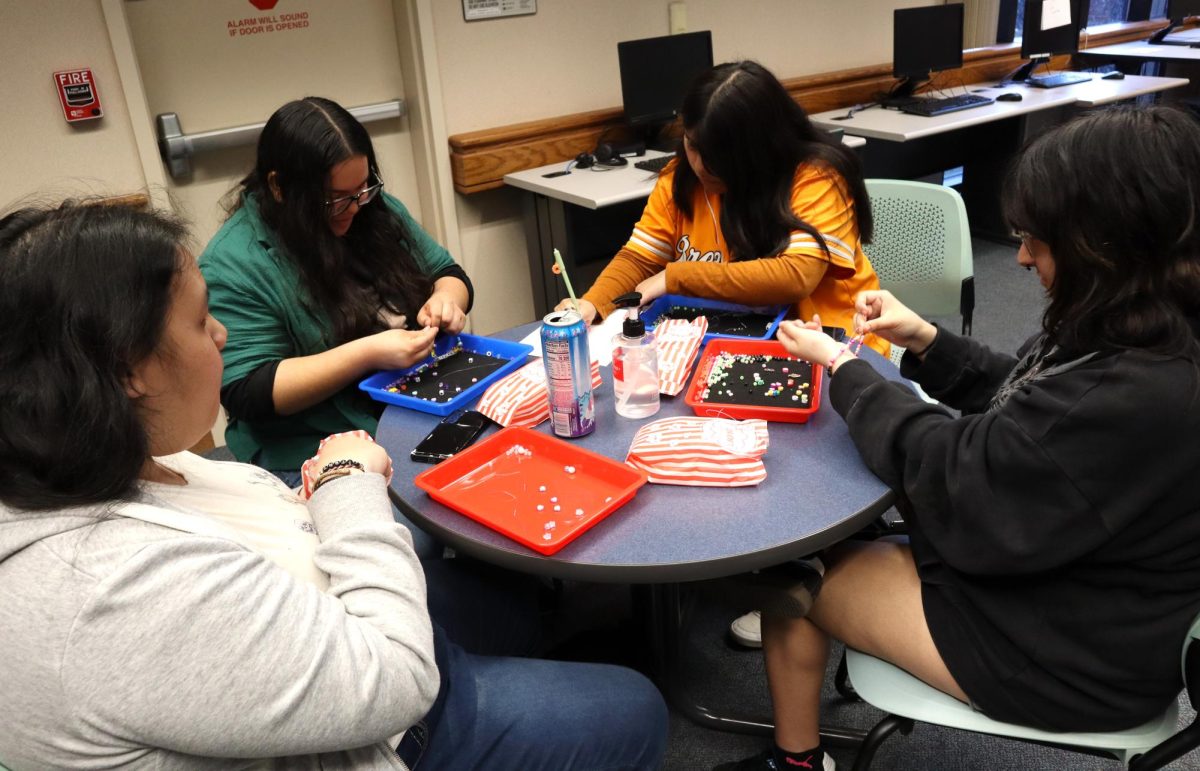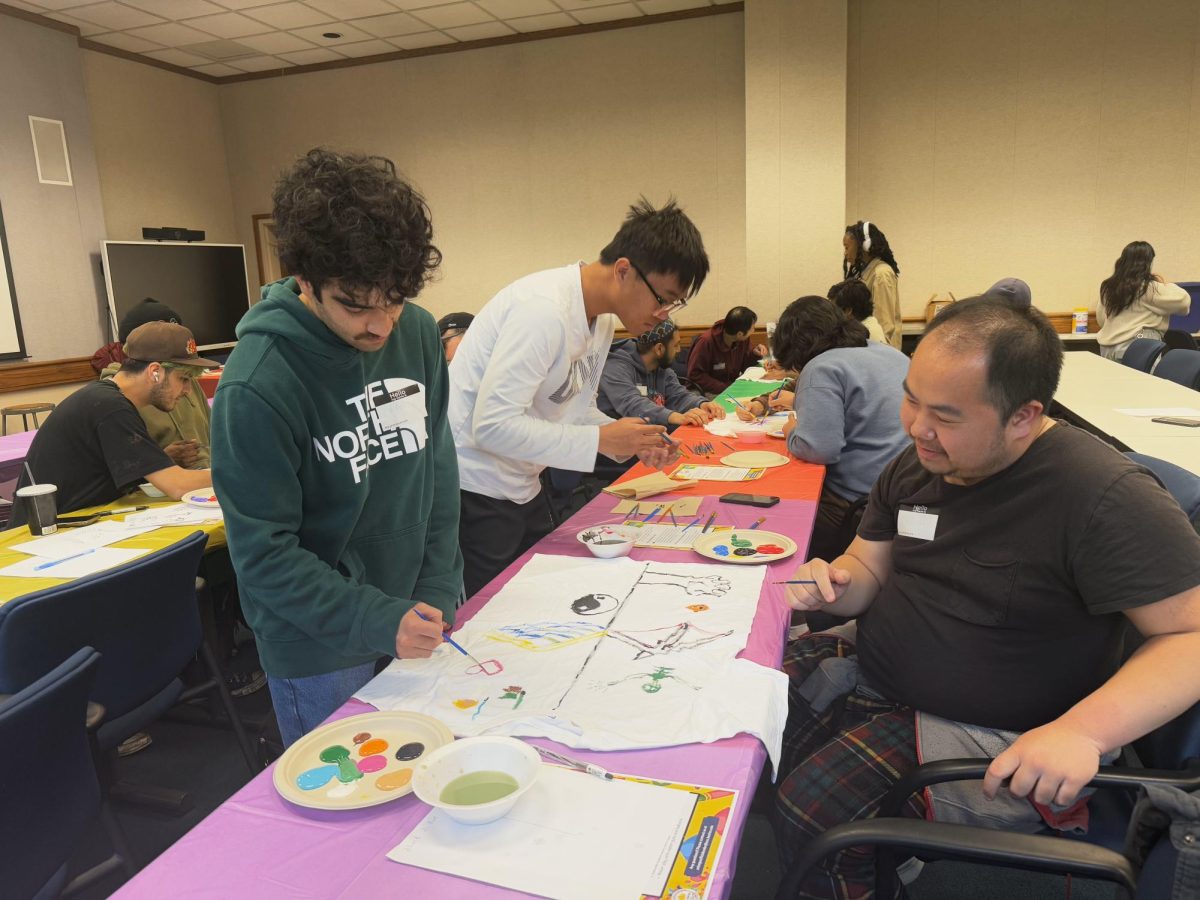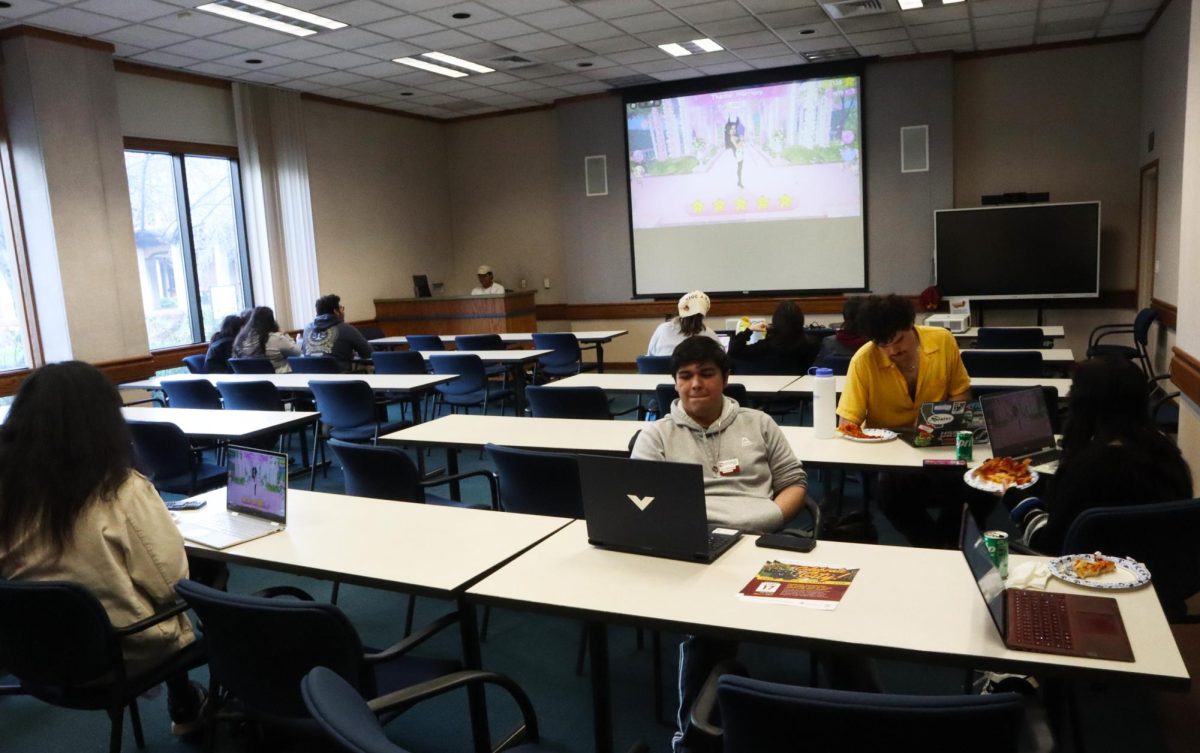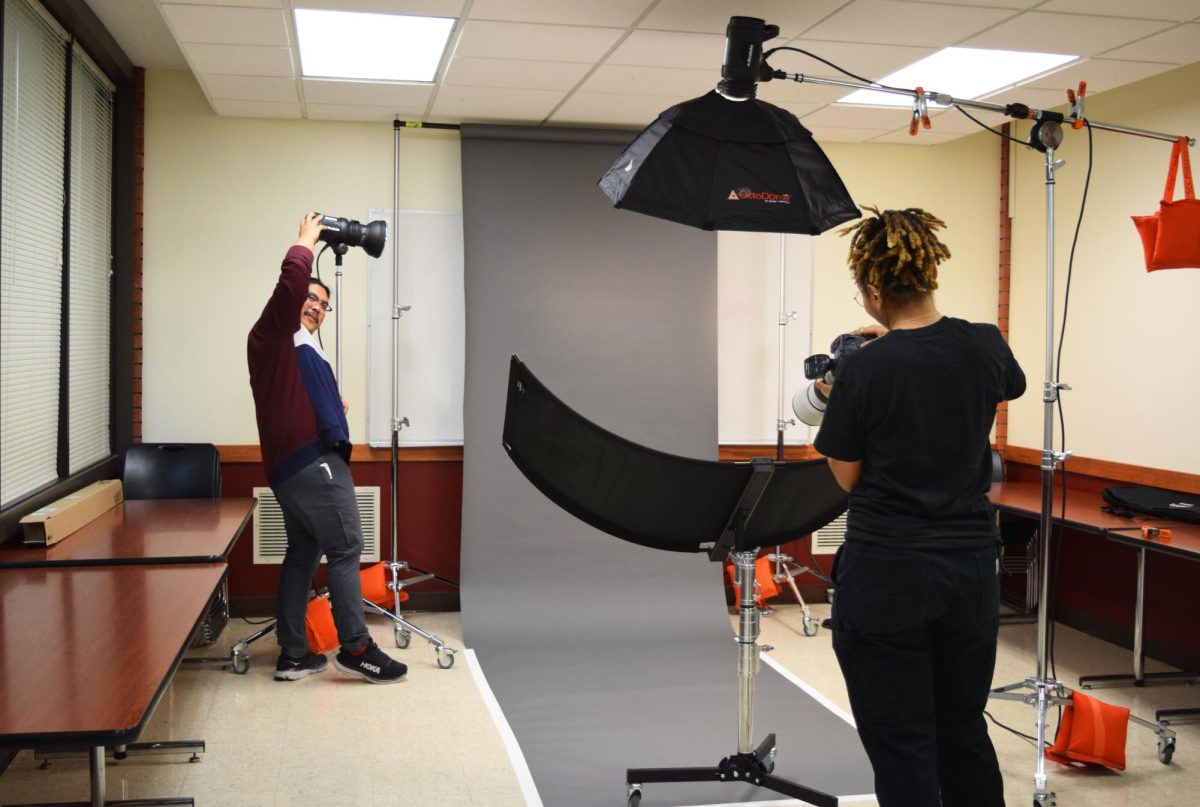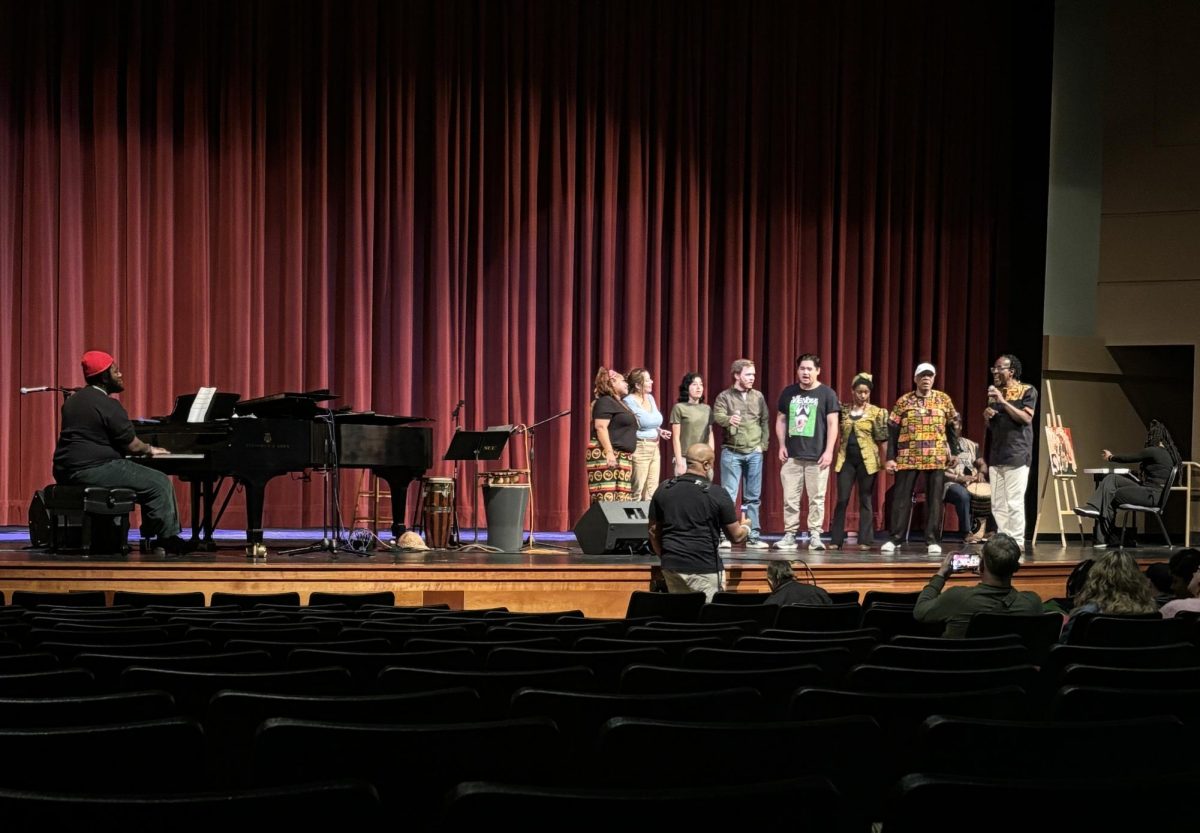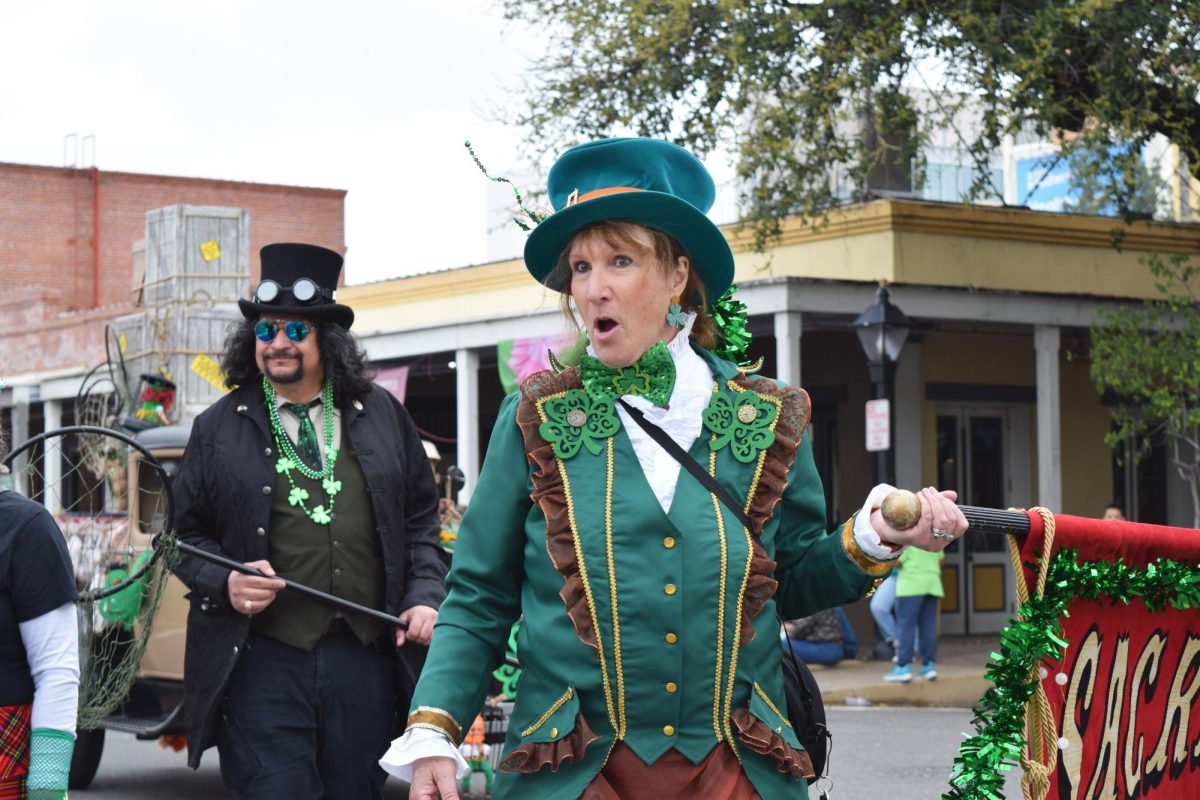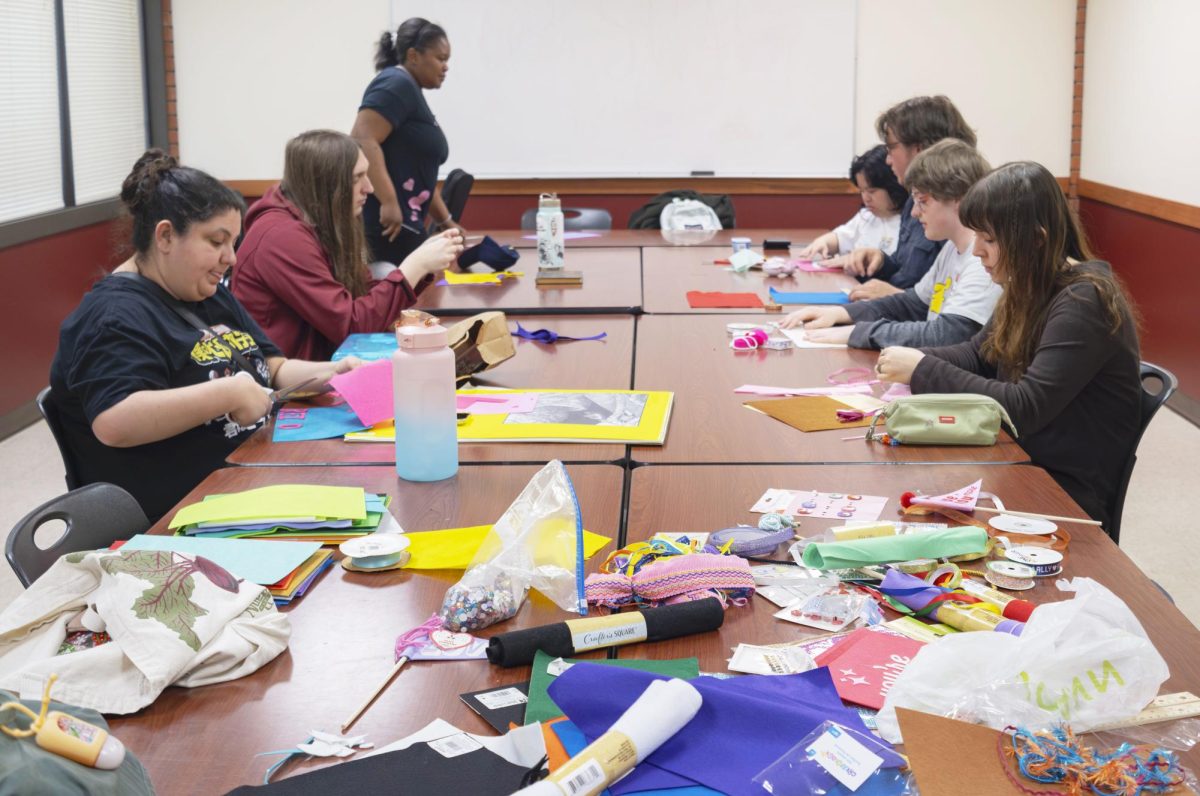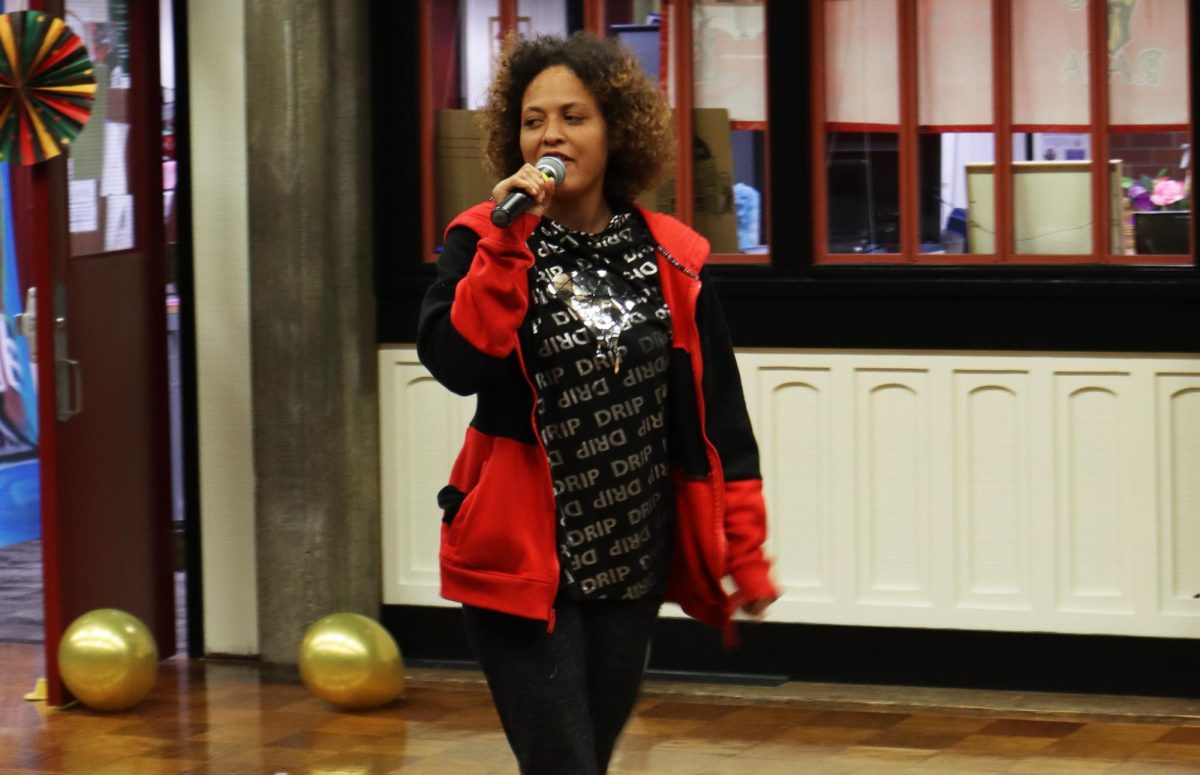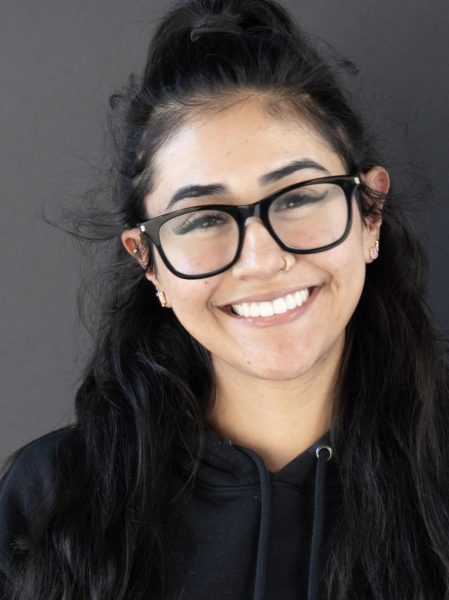Gino Sitson is a French-American musician and composer from Cameroon in Central Africa. In his music, he blends jazz, gospel, blues and traditional African music. His unique style comes from his background, as he grew up in a musical family called the Ntontas, known for playing horns.
Besides being a musician, Sitson is also a scholar and researches how people understand and experience music, especially in African and Afro-descendant communities. Sitson is also involved in humanitarian work, as a UNICEF Cameroon Goodwill Ambassador.
He is now based in New York and, in February, performed at Sacramento City College.
The Express recently attended the Ubuntu Revolution event held by Sitson on Friday, Feb. 7. A stand-out song from the performance was called “Beu nen.” After the performance, the Express had the opportunity to chat with Sitson about his work.
Tell me about yourself and what this event means to you.
This event means a lot to me because it’s Black History Month, so it speaks to my roots, to my heart, especially, mainly as a human being. It’s very important to celebrate the memories of the people who were there before us. You know, that’s why even a couple of songs related to the event, to the moment, to the month. I’m originally from Cameron. So I lived as a kid in Cameron, and then as a teenager in France. Then I moved from France in 2000 to live here in New York. And so I live in New York here, and I teach and I sing. I’ve released eight albums. I have my ninth album coming out soon.
I know that you were a professor at the University of Haiti. How was that?
It’s great. It’s a great experience, because people are really willing to learn and to discover different stuff. Actually, I don’t even teach African ethnomusicology, but I also teach music from the 19th century, like Schoenberg, all this stuff, classical music, and I teach a bunch of stuff in this way. It’s a nice experience to be able to share with people who really need help. We don’t have a lot of money or whatever, but we need to learn, to learn new stuff to gain some knowledge from different people, some from elders like I was mentioning earlier. And for me, it’s always like the blessing is a great experience all the time, sharing with people, sharing what I have to share, and then learning from them. Also it’s a way of giving and taking always. When you teach, you learn a lot. As long as you’re willing to open your mind and to learn from other people. So it’s always a great experience for me to be able to teach and I had some students in different universities, like Columbia [and] different places.
Have you been to Mexico?
No. But actually, I’m going there next week, next year, and I’m probably gonna spend a lot of time. I’m probably gonna spend a lot of time in Cali this year. Oh, Cali, that’s why I want to do some research. Also work with some people, some musicians, because I didn’t get a chance to be there last time when I was in Banach here, but I taught a couple of classes, and mostly, like lectures. Then I had a master class at the Escuela the Artist. It’s part of the university. So for art, it was very interesting. I learned about it here, and they wanted to come back all the time. Is beautiful. Their food is great. It is, it is.
I have a godmother. She lives in Spain. She’s from Salamanca.
I see, and I went to Cuba. Also, I was in Cuba before I came here.
Wow, you’ve been everywhere!
I think, more than 100 countries since I was born here.
So what’s it like being open to so many cultures in your life?
I like feeding myself with different cultures, and it becomes a part of me in the long run because I believe we are all a blend of many cultures with many micro cultures. I call micro cultures. And that’s how human beings are made, there’s no one specific thing. It’s like anything. We are just humans, human beings. Traveling and meeting, getting to learn about different cultures, really helped me to be a better human being and a better scholar, a better musician, also, because I have both hats. Even the books that I wrote in the beginning are not books from Cameron. I’m not talking about Cameroon’s books. I’m talking about all the countries. I mean, there are scientific books. But it’s always a pleasure.
This Q&A has been edited for length, clarity and flow.
Express Exchange is a Q&A series that highlights the people in the Sacramento City College community. Each conversation explores unique experiences, challenges these people overcame and perspective into what matters most in their personal journey. This series provides a space to connect and share meaningful experiences. Have an idea of someone for us to interview? Contact our editors at llentz.express@gmail.com and njeffery.express@gmail.com








